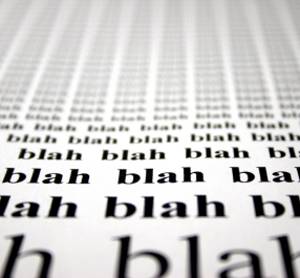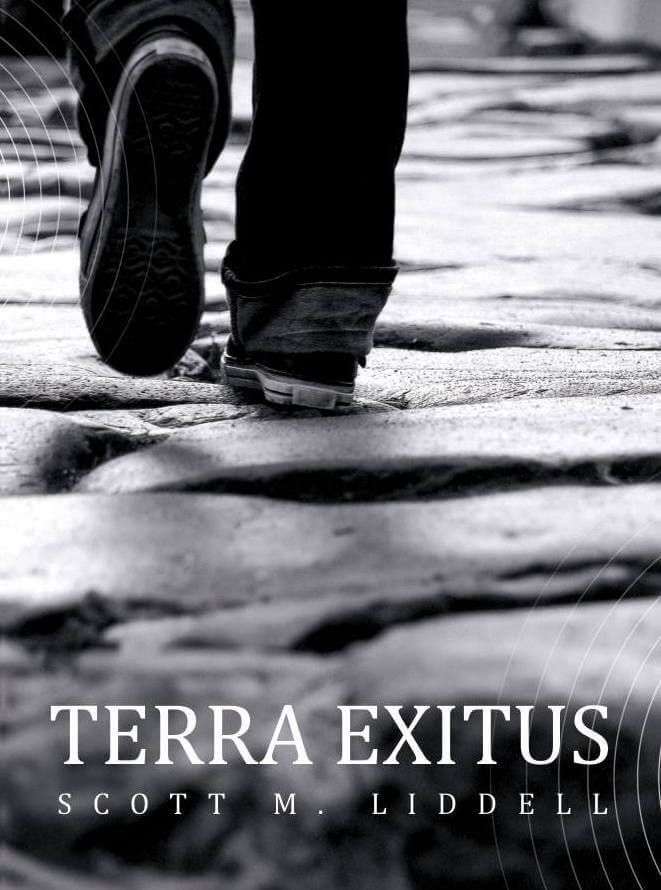This post was originally written for the Safe Space Write-A-Thon website. If you fancy having a go at writing and raising money for a good cause, have a look at the site and get going!
It’s November. After a particularly tiresome drive home in the rain you get out the car and step in a puddle. You get in the house and discover the chicken you were really looking forward to for tea is out of date. Wet and with the rain still lashing down outside, you don’t want to go to the shops so you decide to eat what you have and it’s Shreddies for tea. Which doesn’t warm you or your wet feet up at all.
You crank up the heating and collapse on the sofa. You flick on the TV. There’s nothing on but anything will do as you really can’t be bothered. And then you remember…
I really should do some writing tonight.
You sigh. Twice. There it is. That thought. “I wish I’ve never started this.”
Then the other one, “What’s the point, I’m no good at this anyway.”
But you give yourself a shake, squelch over to the computer (in your soporific state you still can’t be bothered changing your wet socks) and turn it on.
Ping, whirr, chunter. Click. mybook.doc
There it is, the white screen.
So, erm, where was I? What was I writing? Right so, ummm.
You’d better get up to speed. You read the last bit you did last week. It reads like the exuberant ramblings of an 8 year old on the blue Smarties.
“Oh God, that’s rubbish.”
But it isn’t. You’re not. But you’ll think that. Everyone does. Rule #1 – get over it.
Being a part-time writer isn’t easy. Being a first time, part-time writer doubly so. From somewhere you are constantly required to summon up energy, conviction, confidence from thin air.
How do you do that?
Well, the first thing to accept is that it isn’t easy at all. When you’re in the mood, words will flow pyrocrastically (look it up but never use it, overt cleverness alienates the reader, always remember to tell a story and not show off) but most of the time you’ll be wading through a weird quicksand formed in your head from doubt and despair.
That’s why you need a plan. Not a rigid one, there is no point setting word targets and rewards with wine. When you set targets, sometimes you’ll fail and the feeling of failure will lead to more despair. No, the plan has to be subtler than that.
It goes something like this.
Find a way to enjoy it
Whatever you decide to write about it has to be something you enjoy. Whether it is the setting, the plot, the characters you have to like them or find them interesting. If you don’t, it won’t be a world you’ll want to rush back into. You have to want to find out what’s going to happen to the people in the story as much as the eventual reader. If the story is interesting, if cool surprising things happen (or, in your world, about to happen because you haven’t written it yet) you and your reader will be happy to come back to where the story was left off.
So, when you are considering plot think very hard about what you like. What are your favourite books and films? Why did you like them? What makes you laugh/cry/gasp? Or, if you are trying to make a point, what do you care passionately about? I doubt Emile Zola skipped delightfully every day into every page of Les Rougon-Macquart but he had something he wanted to say about people and about the world.
I can just about remember the day I sat down to sketch out the plot for my book. I started with some pretty basic theft. I loved Pot-Bouille by the aforementioned Zola so I nicked the setting only I moved it from Paris to Glasgow. A very simple decision, make all the main characters live in the same tenement. Then I remembered my reaction to a particularly harrowing chapter in The Wasp Factory by Iain Banks. I was on a 16 bus in Glasgow going home. I remember having to stop reading. I wanted to do that (it’s very unlikely I achieved anything as good, but that doesn’t matter). Finally, I remembered the bit in the movie Silence of the Lambs when you think Starling is just doing a routine enquiry and then it dawns on you… gasp! I wanted a twist. I formed my plot around these three things because I loved them and it would make it something I would enjoy to read (and therefore to write).
Obviously, if you’re that way inclined, you could pick something that you think will make you the most money. Something like “Vatican Bondage Robot Wizards” should do the trick. But you won’t enjoy it. Unless you give some of the money to me for such a stellar idea.
Make It Feel Achievable
My book is a short one, about 74000 words. When you start the first sentence that is a very daunting long way away. I looked at it this way. I had written shorter things before. A 2-3K short story wasn’t all that daunting. So all I had to do was split my story up into manageable chunks and each chapter in itself wasn’t so scary. It’s much like when you’re reading a book. Finishing a chapter has a small sense of accomplishment so we all love books with short chapters to keep us ticking along.
I typed out in the whole plot in about 3 pages. Then I went through it and chopped it up into a rough cut at chapters. So, on any given day, I only had the 2-3K word problem of a chapter ahead of me, not the horrible prospect of a seemingly unachievable goal somewhere in the far distance. Sometimes that wasn’t always easy. I’d come to a new chapter and see that I had 2 sentences of my synopsis and chastise my past self with a “you’re having a laugh” – but when you get going you can have a lot of fun turning a very short description into something a little longer and, hopefully, a bit entertaining, this is where the next bit of the plan comes in.
Think First, Write Second
When you arrive at your empty screen of an evening it is hugely beneficial, almost essential, to know what you’re going to write. You might think of something there and then but it’s hard and it might not be that good. If you always know where you are, what you’ve to write next you can use whatever down time you have in the day to create what comes next. This may involve scribbling, note taking whatever you need to remind yourself of the ideas as they come but try to do as much of the thinking away from the screen as you can. People talk about writer’s block. For me that was only ever nights where I was trying to write but hadn’t thought about it in advance.
Obviously, the best trick for this is to always use Hemmingway’s Hack, in his own words:
The best way is always to stop when you are going good and when you know what will happen next. If you do that every day … you will never be stuck. Always stop while you are going good and don’t think about it or worry about it until you start to write the next day. That way your subconscious will work on it all the time. But if you think about it consciously or worry about it you will kill it and your brain will be tired before you start.
Or as Roald Dahl put it:
I never come back to a blank page; I always finish about halfway through. Hemingway taught me the finest trick : “When you are going good, stop writing.” You don’t go on writing and writing until you come to the end of it, because when you do, then you say, well, where am I going to go next? You make yourself stop and you walk away. And you can’t wait to get back because you know what you want to say next.
And who are we to argue with them? Your subconscious will work on it all the time. It just needs enough of a clue what to be thinking about.
The best I ever did on a night of writing after work was about 3000 words. That didn’t happen very often. 1000 words was a good night but if I only managed 500 I was happy. You just need to keep going.
And Never Go Back
Don’t toil over sentences. Don’t fret over a paragraph that might be a little clunky. You’d be able to sort that later. Just keep going forward.
Make It Easy On Yourself
Write about what you know. A well-worn writing tip but no less valid for it. You will need detail, colour, interesting things. Don’t rely on your imagination for them all. Use what you know.
Don’t Be Scared To Jump About
You don’t have to write everything in the order the book prescribes. Some nights other bits of the book will be more immediately available in your head that others. So write them. That’s ok. Just keep writing.
Don’t Be Afraid To Change Your Mind
Your rough plot was just that, rough. You know, people change, things happen and the more you get to know your characters and plot maybe better ways will become apparent. Let it happen. If it changes something you’ve already written, take a note of it for later revision and keep going.
Don’t Get Hung Up On Tools
So, I’ve only written one book. Where is book two? Well, there is a lovely outline in Scrivener on my Mac with automatic backups to DropBox etc. Yeah, if you play with the tools too much you won’t write anything. I know. Believe me. BUT, you MUST back stuff up. Every night when you stop. Even if it is as simple as emailing to yourself. Writing is hard enough without having to write the same thing again constantly convinced that the second version isn’t as good as the first.
And Then You’re Finished
And you need to start editing. I’m not going to say much about that as I was really dreadful at it. If I thought the writing bit was hard, the editing bit was even worse. Just don’t try and do it all yourself, especially proof reading, th mnd cn ply trcks on you.
And Finally
You will always doubt why you’re doing it. I always did. I never really knew why I wanted to try and write a book but I was always sure I wanted to give it a go. Is my book the best book in the world? No. Did it make me money or make me famous? No. But that doesn’t matter. I made it to the end, I wrote a book. I may never write another, who knows. But it’s a great feeling to be able to say you’ve even done one. There is that to look forward to.
One final thing. As people become aware you’re writing a book they’ll ask you what its about, just say “It’s a long story” – always raises a smile!
Best of luck!
Scott Liddell





Great tips.
Now, stop procrastinating by writing and get back to writing that second book.
Only kidding of course. It’s all good advice and perhaps one day I will put it into practice.
Wonderful advice. 2nd thing today I’ve printed out and stuck up near my screen ;-